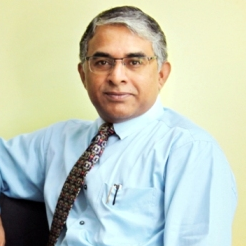CESE-2018: Membrane Technologies for Water Sustainability
A special issue of Membranes (ISSN 2077-0375).
Deadline for manuscript submissions: closed (30 March 2019)
Special Issue Editors
2. Water: Effective Technologies and Tools (WETT) Research Centre, RMIT University, Melbourne, VIC 3000, Australia
Interests: water (treatment, distribution, modeling); wastewater (MBR, membranes in agriculture, aquaculture); saltwater intrusion; resource recovery (mine tailing ponds, dye and salt from textile effluent); novel technologies (forward osmosis, membrane distillation)
Special Issues, Collections and Topics in MDPI journals
Interests: anaerobic membrane bioreactors for industrial wastewater treatment; aerated membrane bioreactors; hybrid membrane systems for biological wastewater treatment
Special Issues, Collections and Topics in MDPI journals
2. School of Engineering, Edith Cowan University, Joondalup, WA 6027, Australia
Interests: water and wastewater (treatment, membrane bioreactor, recirculating aquaculture systems, application of membranes in agriculture); resource recovery (metal recovery from RO concentrate, mine tailing ponds, recovery of dye and salt from textile effluent); novel technology (nanotechnology, forward osmosis, membrane distillation)
Special Issues, Collections and Topics in MDPI journals
Interests: membrane; biological; enzymatic and adsorption technologies for wastewater treatment/reuse; energy/resource recovery from wastewater/biosolids
Special Issues, Collections and Topics in MDPI journals
Special Issue Information
Dear Colleagues,
Population growth, urban intensification and climate change are changing our lifestyles dramatically. One of the precious resources that is affected significantly by the above is water. Increasing water usage and subsequently-generated “impaired water” pose significant threats to existing fresh water resources. Integrated water management has become a sensible approach to avoid losing freshwater resources at faster rates, and to ascertain water sustainability for the foreseeable future. Could we quantify the rate of depletion of fresh water under different scenarios? Could we quantify the contributions of various integrated water management components toward the preservation of fresh water resources? Could we promote the contribution of membrane technologies, which are great contributors of water sustainability?
This call for papers invites researchers broadly and the delegates of the International Conference on the Challenges in Environmental Science and Engineering, CESE-2018 (to be held 4–8 November, 2018, at the Sukosol Bangkok in Thailand) in particular, who are working on the above to submit original research papers, critical review articles, case studies and technical notes on the following themes:
- Membrane application in zero liquid discharge
- Membrane application in industrial wastewater treatment and discharge
- Membrane application for the removal of emerging contaminants from water
- Membrane application in renewable energy production processes
- Membrane applications in stormwater management
- Membrane applications in concentrate management
Authors are requested to provide clear evidence of how their work will contribute to water sustainability in their manuscripts.
Prof. Dr. Jega Jegatheesan
Prof. Chettiyappan Visvanathan
Dr. Li Shu
Assoc. Prof. Faisal I Hai
Guest Editors
Manuscript Submission Information
Manuscripts should be submitted online at www.mdpi.com by registering and logging in to this website. Once you are registered, click here to go to the submission form. Manuscripts can be submitted until the deadline. All submissions that pass pre-check are peer-reviewed. Accepted papers will be published continuously in the journal (as soon as accepted) and will be listed together on the special issue website. Research articles, review articles as well as short communications are invited. For planned papers, a title and short abstract (about 100 words) can be sent to the Editorial Office for announcement on this website.
Submitted manuscripts should not have been published previously, nor be under consideration for publication elsewhere (except conference proceedings papers). All manuscripts are thoroughly refereed through a single-blind peer-review process. A guide for authors and other relevant information for submission of manuscripts is available on the Instructions for Authors page. Membranes is an international peer-reviewed open access monthly journal published by MDPI.
Please visit the Instructions for Authors page before submitting a manuscript. The Article Processing Charge (APC) for publication in this open access journal is 2700 CHF (Swiss Francs). Submitted papers should be well formatted and use good English. Authors may use MDPI's English editing service prior to publication or during author revisions.
Keywords
- Water sustainability
- Membrane technologies
- Zero liquid discharge
- Industrial wastewater
- Emerging contaminants
- Renewable energy









